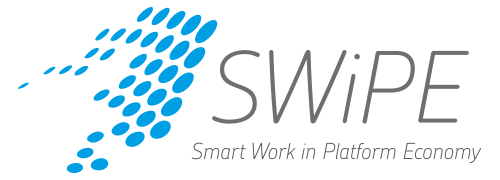 Eveliina Saari is a senior Researcher at the Finnish Institute of Occupational Health and is a Docent of adult education specialising in organisational learning and developmental evaluation at the University of Jyväskylä. She is also programme director for the Strategic Research Council programmes: Skilled Workers – Successful Labour Markets and Health, Wellbeing and Lifestyles. In this role she manages and encourages cooperation between projects and as well as builds relationships with decision-makers. Eveliina Saari has a career spanning both human resources development and research. She is an adult education scientist and her research is centred on change, learning and cooperation. She uses ethnographic case methods in her research to study the different perspectives of multiple actors. Her research ranged from the dynamics of applied research to public services such as early education, services for the elderly and to social and health services.
Eveliina Saari is a senior Researcher at the Finnish Institute of Occupational Health and is a Docent of adult education specialising in organisational learning and developmental evaluation at the University of Jyväskylä. She is also programme director for the Strategic Research Council programmes: Skilled Workers – Successful Labour Markets and Health, Wellbeing and Lifestyles. In this role she manages and encourages cooperation between projects and as well as builds relationships with decision-makers. Eveliina Saari has a career spanning both human resources development and research. She is an adult education scientist and her research is centred on change, learning and cooperation. She uses ethnographic case methods in her research to study the different perspectives of multiple actors. Her research ranged from the dynamics of applied research to public services such as early education, services for the elderly and to social and health services.
What are your strengths as a SWiPE researcher?
“When I look at work and it’s change from a worker’s perspective I need sensitive ears, an ability to step into the others shoes, courage to ask difficult questions and an ability to see how everyday life actually pans out. I still believe that although video cameras and digital recorders are an important part of a researcher’s toolbox, the researchers interpretative eye and thorough field reporting are still essential. Many of my analyses have arisen in the field from the realisation that I’m witnessing something extraordinary that I must be able to show others. I believe that political decision makers would benefit from results and analysis drawn from case research in addition to quantitative studies, even though presenting a condensed message can be difficult. It would be wonderful to combine ethnography with statistical analysis to explore the effects of the platform economy on work in our joint publications!”
What topics would you like to see SWiPE research raise in society?
“I would like to see SWiPE research emphasise how political decision making and employment regulation could best support the everyday lives of workers, especially in light of emerging trends in work, crowdsourcing, self-employment and in entrepreneurship. Overall, I’d welcome research based conversation on how ICT and “smart” -controlled as well as crowdsourced work will replace and or support salaried employment.”

